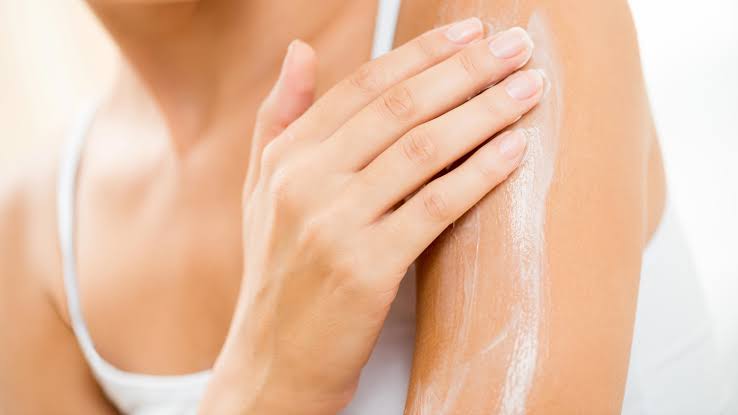Do Face Masks Really Work? An Answer To All Your Queries!

Face masks are one of the little things to look forward to in life like unzipping your jeans after a hearty meal or chugging a glass of freshly squeezed juice on a long, hot day. They are probably the first thing you think of on self-care days where you get to light your candles, throw on a pair of your comfiest pajamas, and pamper yourself. But, are face masks worth the hype? We know that they feel amazing and give you some hardcore spa-at-home kind of feels but do they actually do anything?
Now that the beauty industry has come up with different types of masks- from clay to mud to sheet to creme options, it is easy to feel overwhelmed. Is it also okay for you to question the legitimacy of these masks- do they live up to their promises? Can the mud from a volcano in Iceland really shrink your pores and deep clean your face? If you're itching to find out whether face masks really work, read ahead!
1. Does your skin really absorb all the fancy ingredients?
Companies are now advertising face masks with super fun ingredients like papayas, goats milk, and seaweed. Each of these face masks promises to do different things. Have you ever felt like you need all the face masks displayed at the counter because they target each of your skin concerns? Don't worry, we've been there too!
Now the question is, does your skin actually absorb all the fancy ingredients present in these face masks, or do you just smear them across your face and wash them off the next day? It is important to understand that a mask is not any different than a serum or an ointment that delivers actives to the skin to improve its texture or appearance. The only difference is that masks contain one extra ingredient that works as a solvent and helps your skin absorb more of the other ingredients. Only the "main" ingredients- a small percentage of actives- get absorbed into the skin. This is because the skin's outer layer that protects us from the environment makes it harder for products to reach the deeper layers.
2. How do you know what ingredients to look for?
When searching for the right masks, there are three main ingredients you need to find and include in your skincare regimen. The first one includes chemical exfoliants such as glycolic, lactic, and retinol. These help with dead cell concerns such as dulling and clogging that make your skin look older and tired. The second ingredient to look for is a topical antioxidant like Vitamin C that will protect your skin from premature aging and damaging pollutants by increasing collagen production, evening out skin tone, and reducing excess melanin production. Lastly, search for peptides- these masks will firm the skin by increasing collagen production.
Make sure to read the product label and look for words such as fragrance-free, hypoallergenic, and free of dyes and parabens. Avoid using harsh chemicals, allergens, and preservatives on your skin- you never know what you're allergic to. While finding all these magical ingredients in one mask might not be possible, you can spread them out in your daily skincare routine!
3. What are detoxifying masks?
Detoxifying or decongesting masks are those that pull out blackheads and other impurities from the pores. An example of these masks includes mud masks- these deep clean your skin without leaving it dehydrated. Mud is a skin-healing agent and is water-based, so it doesn't dry out your skin. It acts as a great exfoliator and is suitable for oily, as well as flake-prone skin types. Clay masks, on the other hand, are better suited to oily or breakout-prone skin. They draw out impurities from deep within the pores while reducing oil and clogged pores.
4. What are hydrating masks?
Hydrating masks are the best! Your skin feels supple and glowy and you feel like you've put on a lifetime supply of hydration. But, here's the catch- While hydrating masks have an immediate effect on the skin, the effects are not long-lasting unless you use these masks frequently. Most hydrating masks contain ingredients such as hyaluronic acid, shea butter, or avocado butter. While these ingredients provide a boost of moisture on the skin, they require frequent usage to keep the skin noticeably hydrated and balanced.
5. What is the best time to slap on a sheet mask?
Shopping for masks can be addictive- you'd probably want to buy them all and stuff them into your bag without anyone shooting you a weird look. While you might want to use up all your masks in a span of two days, it is important to be realistic. Dermatologists recommend using a sheet mask at night every 2-3 days so that your skin can absorb all the excess moisture and repair itself at night. Remember to not wash it off and seal in the hydration with your favorite moisturizer!
6. Are at-home face masks safe?
We recommend staying out of the kitchen when it comes to skincare but there are a few ingredients that you could include-
- Milk and yogurt: These contain lactic acid which can exfoliate the skin and help it appear brighter.
- Aloe vera: Known for its anti-inflammatory qualities, aloe vera contains vitamins A, C, E, and B which can help brighten the skin tone.
- Papaya: Contain enzymes that can help with dull skin problems.
- Coffee: Can temporarily help makes your pores look smaller and your skin feel firmer.
7. What ingredients should you avoid?
You may see famous beauty bloggers using a ton of ingredients on their faces, or may get inspired by your best friend's skincare routine. However, make sure to do ample research before putting anything on your skin. We also recommend doing a patch test to see how your skin would react to a certain ingredient. However, there are some ingredients that are a total no-no regardless of what the internet tells you. These include:
- Lemon
- Lime juice
- Apple cider vinegar
- Baking soda




Comments